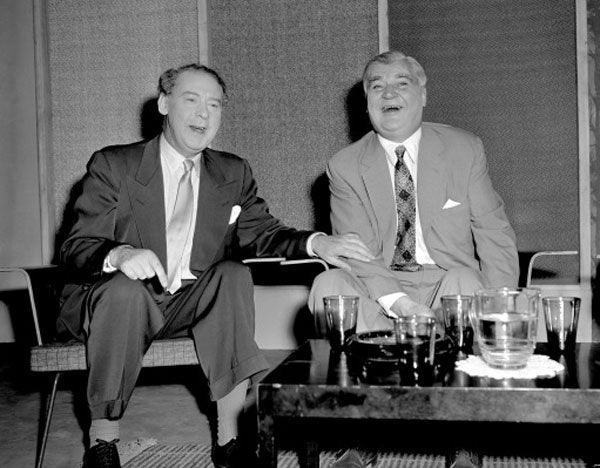Ill Fares the Land, By Tony Judt

Tony Judt is Britain's greatest baby-boom historian. He has been the finest interpreter of 20th-century French intellectual politics writing in English. His masterpiece history, Postwar: a History of Europe since 1945, was chosen as European book of the year in 2009. At the award ceremony in the European Parliament I had to read out the citation because Judt had just been stricken by a wretched motor-neurone disease that took away his body while leaving this great, restless mind burning with things to say.
Now much of that passion can be found in this valedictory essay. Judt, born in 1948, is the quintessential London Review of Books left intellectual. Is he describing himself when he writes: "Sadly, contemporary intellectuals have shown remarkably little informed interest in the nitty-gritty of public policy, preferring to intervene or protest in ethically-defined topics where the choices seem clearer"? During the long Thatcher-Major years, such writers never had to think about policy as there was a clear target of venom. When Labour arrived in 1997, there was a momentary pleasure at the despatch of the hated Tories but then the attacks began again.
This book is in that tradition of how non-Conservative politics always lets down its supporters. In fact, the baby-boom intellectuals have never had it so good. The smart ones like Judt went to America where they had well-paid jobs and an audience that lapped up the oh-so-English cleverness of the 1968 generation of Oxbridge writers – Judt himself plus Simon Schama, Paul Kennedy, Niall Ferguson, Christopher Hitchins, Martin Walker and Colin MacCabe, among others.
Judt's generation practised not so much a trahison but an exil of clercs, and this book is a lament about a lost world of social-democratic fairness - which Judt believes was brought into being after 1945 and then thrown away by Tony Blair, or what he describes as President Obama's "bumbling stewardship of US health care reform."
In France, Judt's generation of left intellectuals laments the passing of les trentes glorieuses – the three post-war decades when, according to their eschatology, the world was made into a better place before it descended into the awfulness of the last 30 years. It suffices to attach the prefix "neo" to almost any word to produce a reflex reaction of hostility. So "neo-liberal" and "neo-conservative" pepper Judt's book as if it makes the argument.
But were the three post-war decades so glorious? There were wars galore. Europeans in east or Mediterranean nations lived under tyranny. There was more equality between workers and the middle classes but only for a limited number of men. Women, gays, immigrants benefited little from the patriarchal, trade-union, Fabian world that Judt so admires. In fact, in this book every quote is from a dead white English-writing male.
Since 1980, the share of the state's income from the wealth produced in most democracies has increased significantly. It's a funny kind of neo-liberalism that sees taxes go up and state bureaucracies appropriate more wealth to their own ends. It is the last 30 years that have seen the greatest growth of democracy in world history: new rights for gays; the Vatican exposed; Islamist ideology with its misogyny, Jew-hate, and denial of human rights challenged; the European Union creating a new model for co-existence between nations.
The Institute of Fiscal studies has just produced a report arguing that under Labour the better-off pay more taxes and there has been redistribution to the poor. I can see that in my working-class constituency in South Yorkshire, where there are new schools, new SureStart children's centres, no waiting lists at the hospital, more public-service workers, and redistributive allowances for poor families and pensioners. But a New York intellectual does not come to Rotherham. If he did he would not be allowed to write for the London Review of Books and he would not have written this book. Judt's history writing is immortal. This book is not.
Denis MacShane MP served as Minister of State for Europe from 2002 to 2005
Join our commenting forum
Join thought-provoking conversations, follow other Independent readers and see their replies
Comments